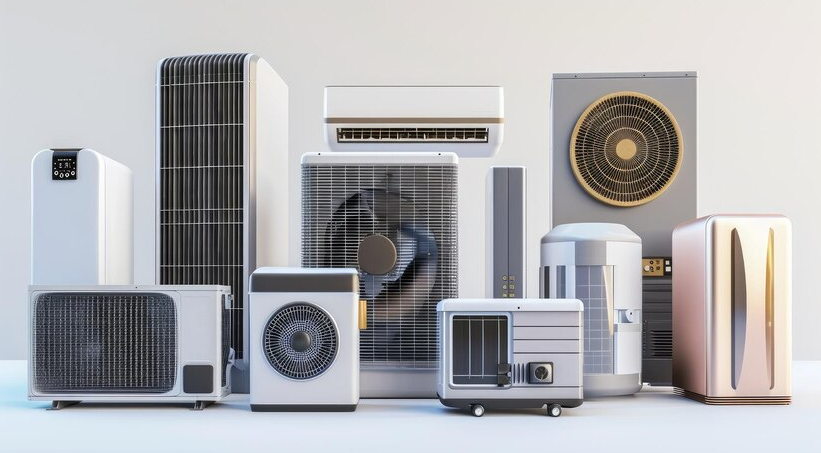Your expansion valve is a small but powerful component that helps keep your HVAC system running efficiently by controlling the flow of refrigerant into the evaporator coils. When it’s working properly, your home stays at the perfect temperature without unnecessary strain on your system—or your wallet. But when issues arise, efficiency drops, energy bills rise, and repairs can become costly.
At Elite Air & Heat of Summerville, we’re here to help you understand how your expansion valve works, how to keep it well-maintained, and when it’s time to bring in a professional for repairs. With the right knowledge and care, you can prevent issues before they start and keep your HVAC system running smoothly year-round!
What are Expansion Valves and How Do They Work?
An expansion valve regulates the flow of refrigerant into your HVAC system’s evaporator coil. As refrigerant moves through the valve, it expands, causing the refrigerant’s pressure to drop, which in turn cools it down. This allows the refrigerant to absorb heat from the air inside your home, enabling the cooling process to begin. Without a functioning expansion valve, your HVAC system cannot operate properly, leading to higher energy costs and potentially a breakdown of your system.
There are different types of expansion valves, including thermal expansion valves (TXVs), electronic expansion valves (EXVs), and automatic expansion valves (AXVs). Each type functions in a similar way, but with slight differences in how they regulate refrigerant flow. Regardless of the type, understanding how these valves work can help homeowners detect problems early and take steps to prevent more significant issues.
Common Expansion Valve Issues and Signs for Repair
Though expansion valves are designed to be durable, they can wear out over time, especially if your HVAC system is older or has not been maintained properly. If you notice any of the following signs, it may be time to address an issue with your expansion valve:
1. Poor Cooling Performance
If your air conditioner isn’t cooling as efficiently as it used to, the expansion valve could be malfunctioning. This issue can occur when the valve is either clogged or leaking, causing insufficient refrigerant flow into the evaporator coils. As a result, the system may fail to absorb enough heat, leading to warmer indoor temperatures.
2. Ice Buildup on Coils
Excessive ice or frost forming on the evaporator coils is a common symptom of a faulty expansion valve. When the valve doesn’t regulate the refrigerant flow properly, it can lead to the coils becoming too cold, causing the moisture in the air to freeze. This can block airflow and reduce the overall efficiency of your HVAC system.
3. Strange Noises
If you hear hissing, bubbling, or clicking noises coming from your HVAC system, the expansion valve may be to blame. A hissing sound typically signals refrigerant leakage, while bubbling can indicate issues with the refrigerant flow. These sounds may be subtle at first, but over time, they could lead to more significant problems if not addressed.
4. Frequent Cycling
If your HVAC system is constantly turning on and off, this could be a sign that the expansion valve is not properly controlling the refrigerant flow. This issue often arises when the valve is stuck in either an open or closed position, causing the system to overcompensate by starting and stopping frequently.
5. Increased Energy Bills
An inefficient HVAC system uses more energy to maintain the desired temperature. If you’ve noticed a rise in your energy bills without any other explanation, a malfunctioning expansion valve could be the culprit. A valve that is stuck in the wrong position can cause the system to work harder than necessary, increasing your energy consumption.
DIY Troubleshooting for Expansion Valve Issues
While dealing with refrigerant flow and HVAC components can be complicated, there are a few DIY steps you can take to troubleshoot expansion valve issues before calling in a professional:
1. Check for Refrigerant Leaks
Inspect the evaporator coils and surrounding components for any visible signs of refrigerant leaks. If you notice oil stains or refrigerant pooling near the valve, this could indicate a leak that needs to be fixed. Keep in mind that handling refrigerant requires special knowledge and tools, so if you find a leak, it’s best to contact an HVAC technician to safely address it.
2. Examine for Ice Build-Up
If you notice ice or frost accumulating on the evaporator coils, shut off the system and allow the ice to melt. Afterward, check the expansion valve to ensure it is not clogged or blocked. Cleaning the valve may help if dirt or debris is preventing the proper flow of refrigerant.
3. Inspect the System’s Pressure
Check the system’s pressure readings using a manometer. Low or high pressure readings can indicate that the expansion valve is malfunctioning. If the readings are abnormal, it’s important to have the valve inspected and calibrated by a professional.
4. Check the Valve’s Operation
If your system has an automatic expansion valve, check the operation by observing whether the valve opens and closes when the system cycles on and off. For thermal expansion valves, ensure the sensing bulb is in proper contact with the evaporator. If the valve is stuck or not functioning properly, it will need to be repaired or replaced.
5. Replace the Filter
A clogged air filter can put unnecessary stress on the HVAC system, including the expansion valve. Make sure to replace the air filter every 1-3 months to keep the system running smoothly and prevent dirt from clogging the valve.
Routine Maintenance for Expansion Valves
Preventing expansion valve issues through regular maintenance is key to extending the life of your HVAC system. Here are a few maintenance tips to ensure your expansion valve continues to perform efficiently:
1. Schedule Regular HVAC Inspections
Having a professional HVAC technician inspect your system annually can help identify early signs of wear and tear on components like the expansion valve. Regular maintenance checks help prevent major problems and ensure that your system is running at peak efficiency.
2. Clean Coils and Valves
Over time, dirt and debris can accumulate on your evaporator coils and expansion valve, reducing their effectiveness. Cleaning these components regularly can help improve refrigerant flow and prevent clogs.
3. Monitor System Pressure
Keep an eye on your system’s pressure throughout the year. If you notice any fluctuations, it may indicate that the expansion valve is not regulating refrigerant properly. If pressure problems persist, it’s best to call a technician to have the valve inspected and replaced if needed.
4. Replace the Expansion Valve if Necessary
Like any mechanical component, expansion valves can wear out over time. If you notice that your system is consistently underperforming despite regular maintenance, it may be time to replace the valve. Upgrading to a newer, more efficient model could improve overall system performance and reduce energy consumption.
Why Choose Elite Air & Heat of Summerville for Expansion Valve Services?
At Elite Air & Heat of Summerville, we understand the importance of keeping your HVAC system in optimal condition. Our team of skilled technicians is trained to handle all aspects of HVAC repair and maintenance, including the inspection, repair, and replacement of expansion valves. We take pride in providing high-quality service to homeowners in the Summerville area, ensuring that your system runs efficiently for years to come.
Contact Us Today!
If your HVAC system is showing signs of trouble or you suspect an issue with your expansion valve, don’t wait for the problem to worsen. Contact Elite Air & Heat of Summerville today for expert diagnosis and repair. Our team is ready to help you maintain a comfortable, energy-efficient home. Schedule your service today and get your HVAC system back on track!

